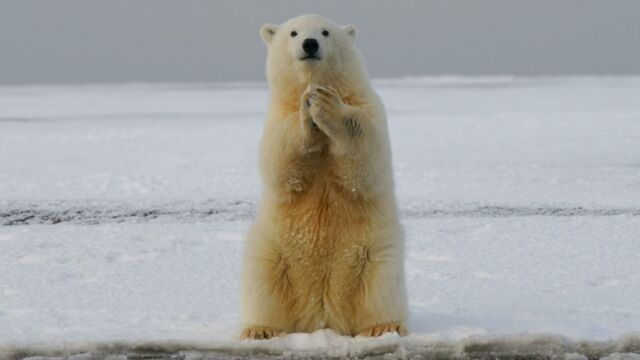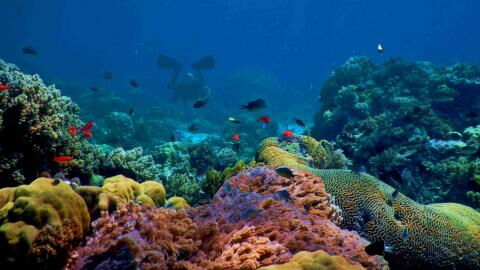Long thought to be a phenomenon that will only impact future generations, global warming is a disaster whose effects are already beginning to be felt. Near the poles, the melting of the ice is accelerating, slowly raising the water level and reducing the chances of survival of species that need the ice pack to hunt. Among these animals are polar bears, which are adapting to these rapid changes as best they can.
Discover our latest podcast
The ice pack, the polar bear's hunting ground
To hunt, polar bears need the ice pack. The calculation is therefore sadly simple: the smaller the ice pack becomes, the more the polar bears starve. Global warming is therefore a catastrophe for these animals, as the ice pack melts earlier and freezes later.
But in Greenland, a group of some 300 polar bears seems to have found a solution. NASA, which funded a recent study, explains in a statement:
In southeast Greenland, researchers have found that bears survive for most of the year in fjords by relying on ice mixtures, a mixture of sea ice and chunks of ice that break off from marine glaciers.
Bears isolated for centuries
According to the researchers, these bears are genetically distinct from those that inhabit the northeast coast of Greenland. Indeed, this region of Greenland is difficult to access, which limits their interactions with humans, but also with each other. Because of this steep and inhospitable terrain, mating between bears is rare and their birth rate is low.
Moreover, southeast Greenland gives a glimpse of what the rest of the island might look like at the end of the century. NASA points out that:
This small, genetically distinct group of polar bears uses strategies that could help the species survive in a warming world.
However, scientists are under no illusion and point out that in the long term, adaptation or not, the melting ice will have dramatic consequences for the polar bear population.
This article has been translated from Gentside FR.
Read more:
⋙ Rare Wild Cat species reappears after supposedly being extinct for 50 years
⋙ The incredible discovery under Antarctica that will change the environment
⋙ New virus discovered in rodents in Europe, should we be worried?















